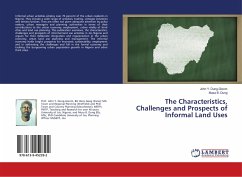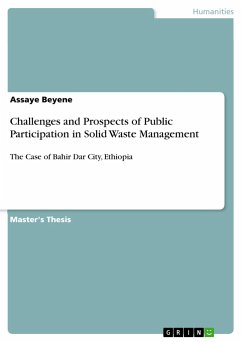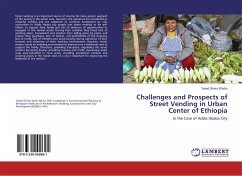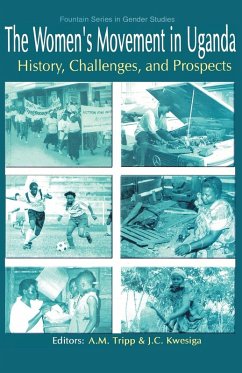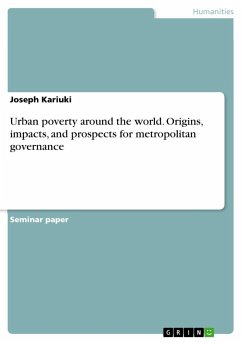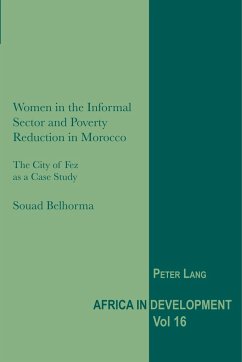
CHALLENGES AND PROSPECTS OF WOMEN IN THE INFORMAL BUSINESS IN ETHIOPIA
The Case of Adama City
Versandkostenfrei!
Versandfertig in 6-10 Tagen
32,99 €
inkl. MwSt.

PAYBACK Punkte
16 °P sammeln!
Informal sector is becoming source of an employment both in urban and rural parts of the world. The sector is getting more support by policymakers because of the opportunities it provides to operators, its ability to mobilize indigenous resources, high labor absorbing capacity, skill development and specialization, enhancing productivity and technical change, competitive market and exploitation of market niches, its dynamic nature with changing economic situation, provide goods and services at affordable prices, utilize limited capital and mobilize local organizations and equitable income dist...
Informal sector is becoming source of an employment both in urban and rural parts of the world. The sector is getting more support by policymakers because of the opportunities it provides to operators, its ability to mobilize indigenous resources, high labor absorbing capacity, skill development and specialization, enhancing productivity and technical change, competitive market and exploitation of market niches, its dynamic nature with changing economic situation, provide goods and services at affordable prices, utilize limited capital and mobilize local organizations and equitable income distribution through the provision of goods and services at affordable prices for the poor. In Ethiopia too,this reserarch indicated that the operators of these sectors were recognized in many studies as poor and individuals who struggle to make certain survival of their family members than to avoid tax. Likewise, in this informal sector there are gender biases and level of hierarchies in which the lower strata was dominated by women. However, many of them derive the majority of their income from this sector even if associated with pros and cons.



